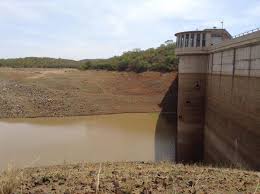Innocent Sibonginkosi Ncube
Bulawayo is facing a severe water crisis, with the Bulawayo City Council (BCC) announcing the decommissioning of Upper Ncema Dam due to critically low water levels.
As of October 2, 2024, the city’s overall dam levels have dropped to 28 percent, with Upper Ncema decommissioned at 2.03 percent capacity. This is the second dam to be decommissioned in less than a year, following the closure of Umzingwane Dam in November 2023.
Acting Town Clerk Tennyson Mpunzi warned in a statement,
“The City of Bulawayo would like to advise members of the public of a critical water shortages due to the alarming low water levels in the Upper Ncema Dam. This marks the second dam to be decommissioned since November 2023, underscoring the gravity of the water crisis facing our city.”
The city is already grappling with a 120-hour water-shedding schedule, with many households facing disruptions that exceed the stipulated times. The BCC is struggling to maintain the supply, and the decommissioning of Upper Ncema Dam will exacerbate the city’s water supply challenges.
Here are the current water levels in Bulawayo’s supply dams:
- Insiza Dam: 40.33 percent
- Inyankuni: 18.07 percent
- Lower Ncema: 21.46 percent
- Umzingwane: 2.14 percent (decommissioned)
- Upper Ncema: 2.03 percent (decommissioned)
- Mtshabezi: 50.79 percent
Mpunzi explained that Upper Ncema Dam was intended to replenish Lower Ncema during the dry season, but the dam gates were opened prematurely on August 28, 2024, due to the ongoing drought.
The government recently refused to declare Bulawayo a water disaster area, attributing the crisis to mismanagement by local authorities rather than a national emergency. However, a joint Parliamentary Portfolio Committee on Local Government, Public Works and National Housing, along with the committee on Sustainable Development Goals, met with BCC officials and toured supply dams and Nyamandlovu Aquifer boreholes to assess the situation.
Residents are urged to conserve water, and the city council is working on rehabilitating the pipeline and resuming water supplies to the affected suburbs.
Zim GBC News©2024


